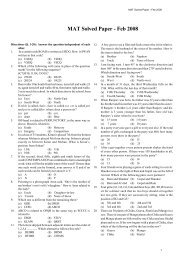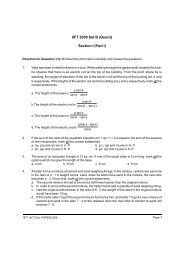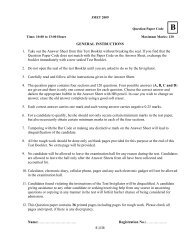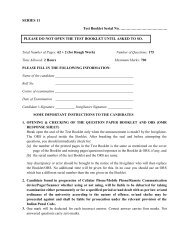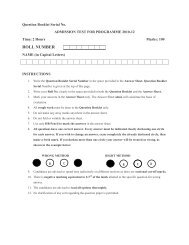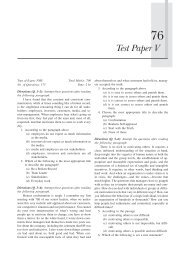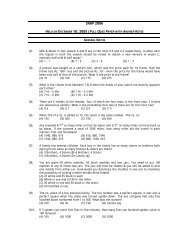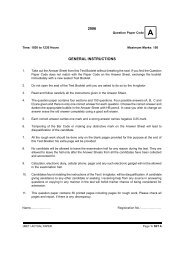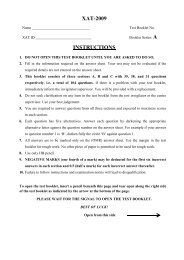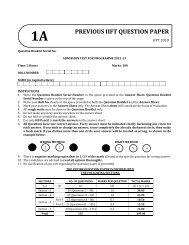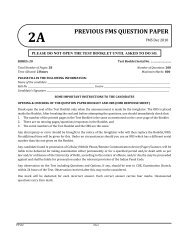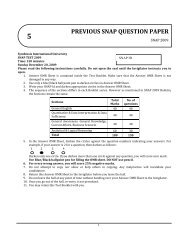You also want an ePaper? Increase the reach of your titles
YUMPU automatically turns print PDFs into web optimized ePapers that Google loves.
some day stand here where I am standing.<br />
Our tragedy today is a general and universal physical fear so long sustained by now that we can<br />
even bear it. There are no longer problems of the spirit. There is only the question: When will I<br />
be blown up! Because of this, the young man or woman writing today has forgotten the problems<br />
of the human heart in conflict <strong>with</strong> itself which alone can make good writing because only that is<br />
worth writing about, worth the agony and the sweat.<br />
He must learn them again. He must teach himself that the basest of all things is to be afraid; and,<br />
teaching himself that, forget it forever, leaving no room in his workshop for anything but the old<br />
verities and truths of the heart, the old universal truths lacking which any story is ephemeral and<br />
doomed — love and honor and pity and pride and compassion and sacrifice. Until he does so, he<br />
labors under a curse. He writes not of love but of lust, of defeats in which nobody loses anything<br />
of value of victories <strong>with</strong>out hope and, worst of all, <strong>with</strong>out pity or compassion. His grief’s<br />
grieve on no universal bones, leaving no scars. He writes not of the hearts but of the glands.<br />
Until he relearns these things, he will write as though he stood among and watched the end of<br />
man. I decline to accept the end of man. It is easy enough to say that man is immortal simply<br />
because he will endure: that when the last ding-dong of doom has clanged and faded from the<br />
last worthless rock hanging tideless in the last red and dying evening, that even then there will<br />
still be one more sound: that of his puny inexhaustible voice, still talking. I refuse to accept this.<br />
I believe that man will not merely endure: he will prevail. He is immortal, not because he alone<br />
among creatures has an inexhaustible voice, but because he has a soul, a spirit capable of<br />
compassion and sacrifice and endurance. The poet’s, the writer’s, duty is to write about these<br />
things. It is his privilege to help man endure by lifting his spirit, by reminding him of the courage<br />
and honor and hope and pride and compassion and pity and sacrifice which have been the glory<br />
of his past. The poet’s voice need not merely be the record of man, it can be one of the props, the<br />
pillars to help him endure and prevail.<br />
Q.10 The phrase “labors under a curse” in paragraph 3 means that the young writer<br />
(A) is under a curse, so to speak<br />
(B) continues to work though he is cursed<br />
(C) is condemned to be abject<br />
(D) is given to lusts<br />
Solution:<br />
10. The answer is option (C). Paragraph 3, lines 5 to 8 make it clear that until and unless the<br />
writer represents the ‘truths of the heart’ through his writing , he will be doomed because then,<br />
his work will be <strong>with</strong>out any hope, pride or respect for himself. Option (A) can be eliminated as<br />
it’s just a literal translation. Option (B) doesn’t make any sense. Option (D) is just an example<br />
given in the passage and not comprehensive enough.<br />
Q. 11 Which of the following inferences CANNOT be drawn from the passage?<br />
(A) Good writing is always about the conflicted human heart<br />
(B) A writer should overcome his fear and advocate the universal truths<br />
(C) A writer should not seek money or fame





